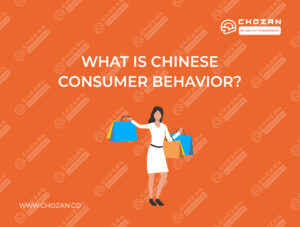The fan economy has been on the rise in China ever since the explosive growth of the China idol industry back in 2018. The market size of China’s fan economy reached over 3.5 trillion RMB back in 2019 and is expected to surpass 6 trillion RMB by 2023. This is no surprising matter as Gen Z makes up a large part of the idol following in China and is also a major consumption force in the country.
And with past controversies with obsessive fans like with the Wang Yibo stalker case, bulk buying like with the milk cartons waste episode, and idols with indecent history like the Kris Wu incident (all of which are issues that will be further detailed in the article), China has finally decided to implement regulations that not only affect fandoms, but also the idols. The reason for their crackdown was due to the number of fans that had been fighting and spreading rumours about other idols on the web and according to the Cyberspace Administration of China, this has “disrupted the pure and healthy online ecosystem” and that fandoms have “harmed the mental and physical health of young people”.
But what exactly are these new regulations and how did they come about? How will these regulations affect brands? Let’s take a look and find out.
The idol and fandom regulations
Eight-point plan
On the morning of the 2nd of September, the National Radio and Television Administration (NRTA) released a statement saying that internet platforms and television companies were to from now on strictly control the roster of TV show hosts and guests by making sure that the stars appearing on screen has the correct political stance, have good conduct, have a high artistic level, and strong social credit.
The NRTA also released an 8-point plan that aimed to regulate the entertainment industry. The plan is as follows:
- Radio, television, and internet platforms are not to take on entertainers and guests who don’t have the right political stance, break the laws and regulations, or go against public order and morals.
- Idol selection shows or shows starring the children of celebrities are not to be created or played anymore. Voting should be strictly regulated and controlled. Encouragement of fans to buy items for the promotion or rankings of their idols is forbidden.
- The promotion of traditional culture and the creation of a correct beauty standard is encouraged. Negative influences such as gossip, “sissy idols”, flaunting wealth, and crude online stars, are not to be interacted with.
- Entertainers are not to get high salaries. Rules on how shows pay guests are to be created, celebrities should be encouraged to take part in charity shows, and under-the-table contracts and tax-evaders are to be punished.
- Rules on people who work in show business are to be created while moral training and professional training are to be provided. Not only must television hosts have their licences, but their social media activity will be monitored.
- The entertainment industry needs to have more professional commentary with correct political direction and values. The spreading of rumours and insults are condoned and promoting a kind and positive culture is encouraged instead.
- Associations from the entertainment industry should start criticising negative examples and provide more training. Entertainment associations must also make sure people in the industry are following the rules.
- Regulators are to start listening to concerns and fill public spaces with positive programmes.
As shown, some key points from the plan include banning idol reality shows and all shows featuring celebrity children and strictly regulating celebrity salaries. The plan also mentions the ban of ‘sissy idols’, or in other words, popular effeminate-looking men.
Barring platforms from activity that promotes toxic fandom culture
In August 2021, the leading internet regulator in China announced that it will start prohibiting platforms from operating online popularity ranking lists of Chinese celebrities. It was said that fans were spending money to rig the charts. Other online platforms were told to not lure fans into spending money in support of their idols. By doing this, the Cyberspace Administration of China hopes to prevent fake user accounts and to make the process of turning the recommendation algorithms off easier for users. It has also strictly forbidden minors to participate in fan gatherings or conduct that indicates worshipping behaviour.
Qing Lang Campaign
The Cyberspace Administration of China launched the Qing Lang (清朗) campaign, meaning ‘Clear and Bright’, last summer. This was a two-month campaign that aimed to target the many problems arising from “fanquans” (饭圈). “Fanquan” otherwise known in English as ‘fan circles’ are groups of highly devoted fans who dedicate their time and money to boosting their favourite idol’s popularity. The top internet regulator strictly investigated and removed accounts that displayed any malicious fan behaviour, fulfilling their clean up duties of any content that promotes harmful values such as flaunting wealth and hedonistic behaviour.
Why were these regulations implemented?
With the popularisation of idols and idol groups in South Korea and Japan, it is to no surprise that China would soon follow as well. Reality talent shows such as ‘Youth With You’ and ‘Produce 101’ based on similar South Korean programmes became very popular in China. Each contestant on the show seemed to have their own cult following online, each having their own fanquan. Soon, the popularity of idols began to rise in China with tons of fandoms seeming to pop up.
Obsessive fans
Unfortunately, with the rise of fandom culture, so comes the rise of ‘“Sisheng fans” (私生饭). “Sisheng fans” are fans who exhibit an obsessive attitude towards their idols and engage in stalkerish behaviour.
Wang Yibo, a popular Chinese idol, had his location tracked by sisheng fans multiple times and even got them knocking on his hotel door. Wang got tired of this behaviour and went on Weibo to publicly denounce this behaviour by his fans.
Jackson Wang, another well-known celebrity in China, got his car rear-ended while he was inside. The accident was caused by his sisheng fans that were in the other car. The incident left him with a back injury and his agency had to release a statement telling fans to be more careful.
Bulk buying
According to The Guardian, more than half of the viewers of Produce 101 were Millennials and Gen Zs. These viewers also happen to fall in the category of the most powerful consumer groups in China, having their spending habits revolve mostly around these idols. Fans of idols would start bulk buying their idol’s albums or merchandise in order to increase their star’s ranking on celebrity ranking sites.
In May of this year, a video of a group of middle-aged people pouring cartons and cartons of milk into a drain was leaked online. It was discovered that the cartons of milk in question were mass bought by fans of the show, Youth With You. They were after the QR codes that came with the packaging that enabled them to vote for their favourite contestant on the show. And having no need for the milk itself, it was poured down the drain. This instantly caused backlash from the Chinese government who had just launched an anti-food waste campaign at the time.
Rise of scandals related to idols
Tony Yu Jingtian
Before the scandal of the spilt milk, there were already problems brewing with Youth With You. Tony Yu Jingtian, a contestant in the show had his family background questioned by viewers when posts started appearing online alleging that his parent’s karaoke business was a front for shady dealings involving drugs and prostitution. It was also revealed that while he proudly presented himself as a Chinese man, he also held Canadian citizenship. This caused controversy as dual citizenship is not allowed in China.
Former fans of his even went online to lament about their wasted money and votes on him, immediately ‘cancelling’ the once-beloved star and having him leave the show altogether.
Kris Wu
In August, allegations of sexual abuse of women by popular Chinese singer Kris Wu emerged online, prompting Chinese authorities to take action. The celebrity has since been detained by the Public Security Bureau at Chaoyang. Although his arrest has been celebrated by Chinese netizens, there are still many of his fans that believe him to be innocent. These fans even make wild claims about how they were going to break him out of prison.
How brands are affected by China’s regulations on idols
Because of incidents like the milk-dumping disaster, brands should now be more wary of how they promote their product. They might have to make sure that they don’t go against the new guidelines set by China, meaning that their marketing or product must not contain something that can influence a celebrity’s ranking by voting or anything that might portray their male brand ambassadors as ‘sissy men’.
With cosmetic and fashion brands having mostly young women as their target consumers, it is plain to see why they would recruit attractive young male celebrities as their brand ambassadors. Idols like Zhu Zhengting and Liu Yu are often the first choices for these brands, collaborating with them to promote everything from lipsticks to eye shadows. Wang Yibo, an ambassador for Chanel, has even sported their women’s blazers and jewellery.
And with the lack of clarity for what the new rules and regulations define as ‘sissy men’, it might be hard for brands to find that balance for how they can market their products. Brands are not sure whether putting cosmetics and women’s clothing on male brand ambassadors in order to promote themselves can be seen as going against the government’s rules.
Although the strict regulations have been set in stone, consumers will still always look to KOLs in their decision-making process when purchasing. So while the new regulations can put some limitations on brands when it comes to co-branding in China, it is important for companies to learn how to strike a balance that satisfies consumers and abides by the regulations.
Want to learn more about the latest updates on the China Market? Join our China Marketing Circle for individual and tailored corporate updates.
For more updated insights on China’s digital space, our new Quarterly Mega China Report covers major consumer groups and the most popular social media and e-commerce platforms. You will also find up-to-date, actionable advice on China marketing strategies, a China marketing calendar, and the latest industry updates from 50+ China experts and the ChoZan marketing team.
Read more related posts
-
China’s Growing Love Affair With Sports: 3 Trends for Sports Marketing in China?
Sports and exercise have always played a prominent role in Chinese life. What are the newest sports marketing in China? Although it has traditionally taken a backseat to academics for…
-
China’s Growing Love Affair With Sports: 3 Trends for Sports Marketing in China?
Sports and exercise have always played a prominent role in Chinese life. What are the newest sports marketing in China? Although it has traditionally taken a backseat to academics for…
-
China’s Growing Love Affair With Sports: 3 Trends for Sports Marketing in China?
Sports and exercise have always played a prominent role in Chinese life. What are the newest sports marketing in China? Although it has traditionally taken a backseat to academics for…
-
China’s Growing Love Affair With Sports: 3 Trends for Sports Marketing in China?
Sports and exercise have always played a prominent role in Chinese life. What are the newest sports marketing in China? Although it has traditionally taken a backseat to academics for…
-
Live Quiz Apps: the Latest Trendy Marketing Channel in China
Wang Sicong, an outspoken blogger and the son of a Chinese billionaire, published a post on Weibo early January, inviting his followers to download a quiz game app called Chongdingdahui…






